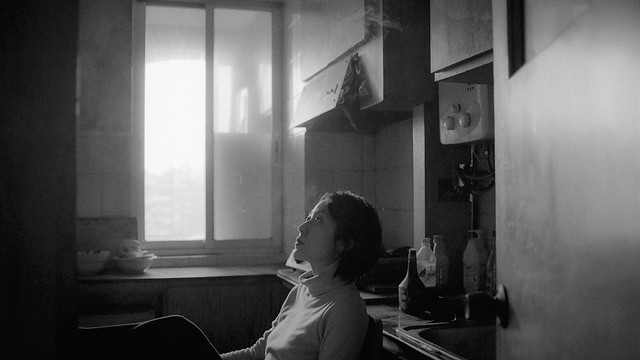
Muzi (Jing Jin) is home in Hangzhou for the new year's. She is a recent college graduate, trying to find her way in the world. Her parents are divorced and in other relationships. She herself is in uncommitted relationship with a college flame Yu Fei (Zhou Chen) who comes to town to see her. She is also trying to vie for the attention of an older, worldly bar owner (Kangning Dong). She spends a lot of time alone in her parents old high-rise apartment, now empty and abandoned. So this is the backdrop of this densely layered, cinematically inventive debut of Zheng Lu Xinyuan.
Mixing documentary style handheld camera work, interviews, inverted images, mirror effects and static long takes, the monochrome The Cloud in Her Room is perhaps the most astutely realized work that befits its self-consciously digital cinematography (by DP Mathias Delvaux), even much more so than Alfonso Cuaron's Roma. It's precisely because of its social realism, here and now of changing China, instead of period piece of reimagined Roma - the vast crisp grey mid-tone reflects the smoggy industrial cityscape and one-thousand-cigarettes-a-day urban ennui much more so than the 70s Mexico City. It also accentuate its dreamy, ethereal, soft-edged quality of the film. Some of the compositions and experimental playfulness as well as its mid-tones remind me not of French New Wave (incessant smoking notwithstanding), but that of Japanese New Wave, namely some of Wakamatsu's work and Yoshida's Heroic Purgatory.
As the characters declare never to fall in love again, and buff each others advances and (not)say farewells in haze and smoke, we realize that it's all been done and seen before. But Zheng Lu seems to have found a new fresh way to look at the human banality and make it beautiful and dreamy, breathing a new life into, uh, life.
No comments:
Post a Comment